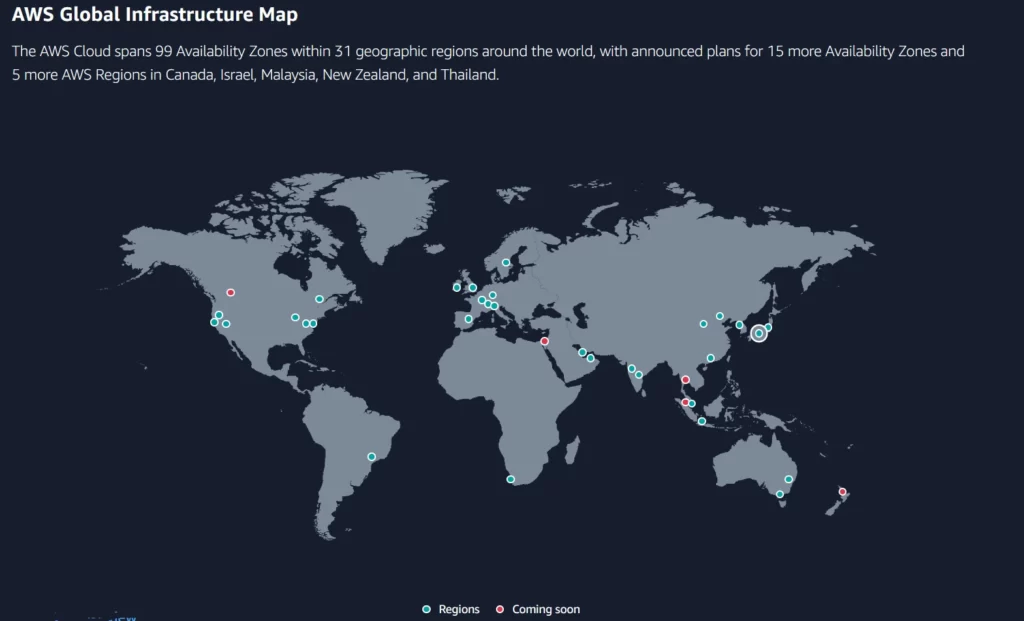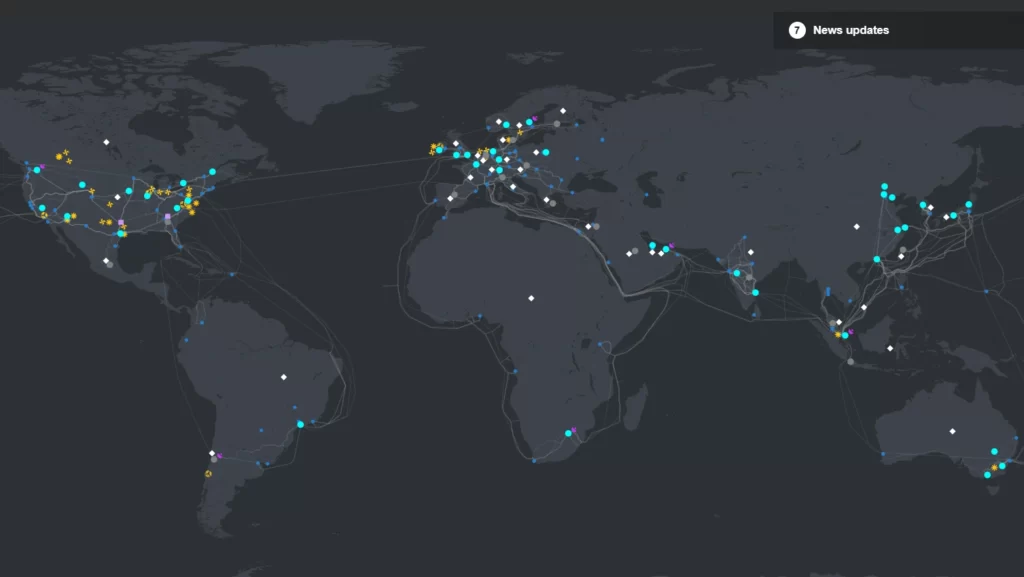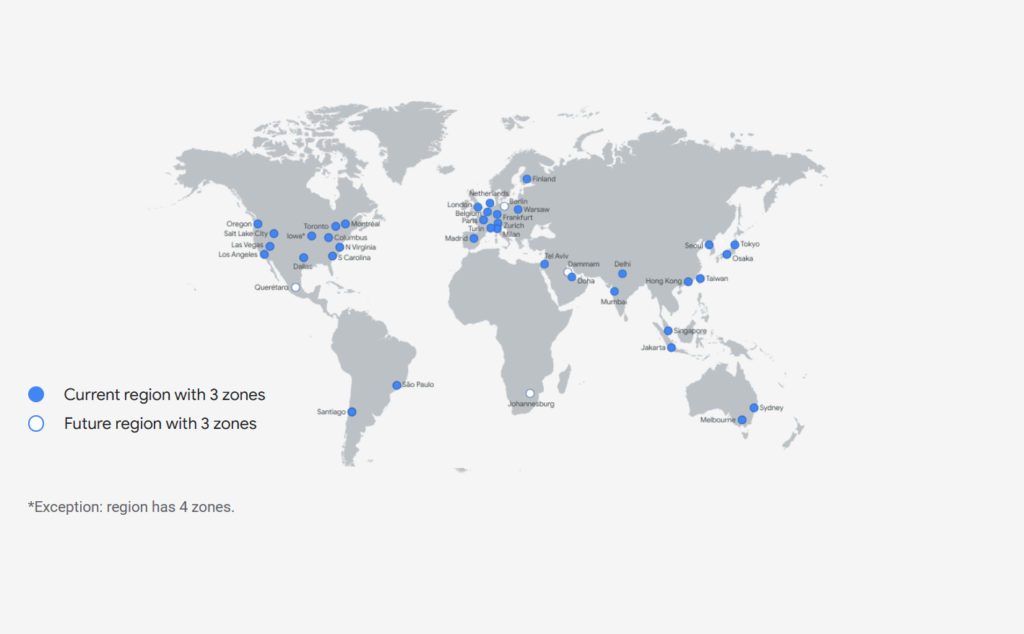The cloud-based web hosting industry has experienced tremendous growth in recent years, with numerous companies vying for the top spot. As businesses continue to migrate their operations to the cloud, the demand for reliable, secure, and high-performance hosting solutions has never been higher.
In this article, we will compare the top three industry leaders in cloud-based web hosting services, examining their strengths and weaknesses to determine which company currently holds the crown.
Which company is currently the leader in cloud-based web hosting services?
Amazon Web Services (AWS) is currently the leader in cloud-based web hosting services. AWS holds a significant market share and is the most popular choice for businesses of all sizes, from startups to Fortune 500 companies. Its comprehensive range of services, global infrastructure, and robust security measures make it the top choice for businesses seeking reliable, high-performance hosting solutions. However, Microsoft Azure and Google Cloud Platform are also strong contenders in the market, each with their unique strengths and weaknesses.
Leader in cloud-based web hosting services
1. Amazon Web Services (AWS)
Amazon Web Services (AWS) is the undisputed leader in the cloud-based web hosting market. Launched in 2006, AWS has grown to become the go-to choice for businesses of all sizes, from startups to Fortune 500 companies. AWS offers a wide range of hosting solutions, including virtual private servers (VPS), dedicated servers, and managed hosting services.

Strengths:
- Market dominance: AWS holds a significant market share, making it the most popular choice for cloud-based web hosting. This dominance has allowed AWS to invest heavily in infrastructure, ensuring high levels of performance and reliability.
- Comprehensive service offerings: AWS provides a vast array of services, including computing power, storage, databases, and content delivery networks (CDNs). This extensive range of offerings allows businesses to build and scale their applications with ease.
- Global infrastructure: AWS has data centers in 25 geographic regions, ensuring low latency and high availability for customers worldwide.
- Security and compliance: AWS is known for its robust security measures and compliance certifications, making it a trusted choice for businesses with strict security requirements.
Weaknesses:
- Pricing: AWS’s pay-as-you-go pricing model can be complex and difficult to predict, leading to unexpected costs for some customers.
- Steeper learning curve: AWS’s extensive range of services can be overwhelming for newcomers, requiring a significant investment of time and resources to master.
2. Microsoft Azure
Microsoft Azure is a close competitor to AWS, offering a comprehensive suite of cloud-based web hosting services. Launched in 2010, Azure has gained significant traction in the market, particularly among businesses that rely heavily on Microsoft products.

Strengths:
- Integration with Microsoft products: Azure’s seamless integration with other Microsoft products, such as Office 365 and Dynamics 365, makes it an attractive choice for businesses already invested in the Microsoft ecosystem.
- Hybrid cloud capabilities: Azure’s hybrid cloud solutions allow businesses to combine on-premises infrastructure with cloud-based services, providing flexibility and scalability.
- Strong developer support: Azure offers a wide range of tools and resources for developers, including Visual Studio integration, making it easier to build and deploy applications.
- Competitive pricing: Azure’s pricing model is more straightforward than AWS’s, making it easier for customers to predict and manage costs.
Weaknesses:
- Smaller global footprint: Azure has fewer data centers than AWS, which may result in higher latency for some customers.
- Less mature platform: Azure’s platform is not as mature as AWS’s, which may lead to occasional performance and reliability issues.
3. Google Cloud Platform (GCP)
Google Cloud Platform (GCP) is the third major player in the cloud-based web hosting market. Launched in 2011, GCP has made significant strides in recent years, attracting customers with its innovative technologies and competitive pricing.

Strengths:
- Cutting-edge technology: GCP is known for its innovative technologies, such as machine learning and artificial intelligence (AI) capabilities, which can provide businesses with a competitive edge.
- Simple pricing model: GCP’s pricing model is more straightforward than AWS’s, making it easier for customers to predict and manage costs.
- Strong performance: GCP’s infrastructure is built on Google’s global network, ensuring high levels of performance and reliability.
- Environmentally friendly: GCP is committed to using renewable energy sources and has set ambitious sustainability goals, making it an attractive choice for environmentally conscious businesses.
Weaknesses:
- Smaller market share: GCP has a smaller market share than AWS and Azure, which may limit its ability to invest in infrastructure and innovation.
- Limited integration with third-party tools: GCP’s integration with third-party tools and services is not as extensive as AWS’s or Azure’s, which may be a drawback for some customers.
Comparison of the Top 3 Cloud Hosting Providers
| Feature | AWS | Microsoft Azure | Google Cloud Platform |
|---|---|---|---|
| Market Share | High | Medium | Low |
| Service Offerings | Comprehensive | Comprehensive | Comprehensive |
| Global Infrastructure | 25 regions | 19 regions | 24 regions |
| Security & Compliance | Excellent | Excellent | Excellent |
| Pricing Model | Complex | Straightforward | Straightforward |
| Learning Curve | Steeper | Moderate | Moderate |
| Integration with Products | Good | Excellent (Microsoft) | Good |
| Developer Support | Good | Excellent | Good |
| Performance & Reliability | Excellent | Very Good | Excellent |
| Environmental Commitment | Good | Good | Excellent |
Which cloud hosting service is best for beginners?
For beginners, Google Cloud Platform (GCP) is often considered the best cloud hosting service. GCP offers a user-friendly interface, straightforward pricing, and a range of tools and resources that make it easier for newcomers to get started with cloud hosting. Here’s why GCP stands out for beginners:
- Intuitive interface: GCP’s web console is designed with simplicity in mind, making it easy for beginners to navigate and manage their hosting resources.
- Straightforward pricing: GCP offers a simple pricing model, which helps beginners understand and predict their hosting costs more easily compared to the more complex pricing structures of AWS and Microsoft Azure.
- Free tier: GCP provides a generous free tier, allowing beginners to experiment with various services without incurring costs. This is an excellent way to learn and gain hands-on experience with cloud hosting.
- Comprehensive documentation: GCP offers extensive documentation and tutorials, which can help beginners learn the ins and outs of cloud hosting and the platform’s various services.
- Community support: GCP has an active community of users and developers who can provide assistance and guidance to beginners through forums, blogs, and social media channels.
While GCP is an excellent choice for beginners, it’s essential to consider your specific needs and requirements when selecting a cloud hosting service. If you’re already invested in the Microsoft ecosystem or require seamless integration with Microsoft products, Microsoft Azure might be a better fit. Similarly, if you’re looking for the most extensive range of services and global infrastructure, Amazon Web Services (AWS) could be the right choice. However, keep in mind that AWS has a steeper learning curve compared to GCP and Microsoft Azure.
Recommended beginners friendly cloud hosting plan
For beginners, I recommend starting with Google Cloud Platform’s (GCP) “Always Free” tier. This plan offers a range of services and resources at no cost, allowing you to experiment and learn without incurring expenses. The “Always Free” tier includes the following resources:
- Compute Engine: 1 f1-micro instance per month (available only in select regions) with 30 GB of HDD storage.
- Cloud Storage: 5 GB of regional storage per month.
- Cloud Functions: 2 million invocations, 400,000 GB-seconds, 200,000 GHz-seconds, and 5 GB of outbound networking per month.
- Cloud Pub/Sub: 10 GB of messages per month.
- Cloud Run: 2 million requests, 360,000 GB-seconds, 180,000 GHz-seconds, and 1 GB of outbound networking per month.
- Firebase Realtime Database: 1 GB of storage and 10 GB of data transfer per month.
- Google Maps Platform: $200 credit per month for Maps, Routes, and Places products.
Please note that the “Always Free” tier has usage limits, and exceeding these limits may result in charges. Make sure to monitor your usage to avoid unexpected costs.
As you become more comfortable with GCP and require additional resources, you can explore their “Pay-As-You-Go” pricing model. This model allows you to pay only for the resources you use, providing flexibility and scalability as your needs grow.
Remember to consider your specific requirements and the services you plan to use when selecting a cloud hosting plan. If you find that GCP’s “Always Free” tier doesn’t meet your needs, you can explore similar free tiers offered by Amazon Web Services (AWS) and Microsoft Azure. Both platforms provide a range of services and resources for free, allowing you to learn and experiment with their respective platforms.
Conclusion,
While all three companies offer robust cloud-based web hosting services, Amazon Web Services (AWS) currently holds the title as the industry leader. AWS’s market dominance, comprehensive service offerings, and global infrastructure make it the top choice for businesses seeking reliable, high-performance hosting solutions.
However, Microsoft Azure and Google Cloud Platform are close contenders, each with their unique strengths and weaknesses. Ultimately, the best choice for your business will depend on your specific needs, budget, and existing infrastructure.